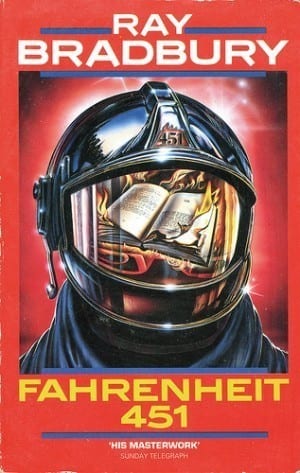
The author of classics such as “Fahrenheit 451” will be remembered as one of the greatest contributors to literature of the past century
Ray Bradbury, the popular and influential science fiction writer known for such works as Fahrenheit 451, passed away Tuesday in Los Angeles at the age of 91. Ray Bradbury’s career spanned 71 years and was marked with tremendous successes in genres ranging from fantasy, science fiction and what has been termed “speculative fiction.”
Ray Bradbury wrote in ways that sparked the imagination of readers and sought to both instill deep and wondrous questions and answers to some of life’s most complex and troublesome mysteries while creating worlds both far from imagination yet wholly within the reach of a constantly evolving society.
It “is difficult to grasp, emotionally, that we are no longer sharing the universe with this literary giant, this legend, this magician of story,” stated former co-editor of Weird Tales and sci-fantasy writer Darrel Schweitzer, whom added, “It is as if the sun has gone out. He leaves a very large hole in American literature, which can never be filled.”
In works such as The Martian Chronicles (1950) and The Illustrated Man (1951) and novels including Fahrenheit 451 (1953), Something Wicked This Way Comes (1962) and Dandelion Wine (1957), Ray Bradbury wove speculation into every minute particle of the atmospheres he created, focusing his writing intently on the intricacies of time and the ever-Malthusian evolution of technology and surveillance, the future of our society and the wonders of an expanding universe.
Ray Bradbury was born in Waukegan, Ill., in 1920. The idyllic small-town environment that Bradbury was born into surfaced repeatedly in his works as many revolve around the sense of adventure possessed by small-town young men.
Ray Bradbury moved to Los Angeles with his family in his teens. While in his late teens, Ray Bradbury began self-publishing. In 1941, Bradbury was first paid for a short story. Bradbury would continue to write more than 600 short stories in the course of his career. In addition to writing 27 novels, Bradbury also wrote memoirs, plays, poems, essays, and radio, TV and film scripts.
Bradbury’s stories appeared in classic radio and TV shows, including Suspense, The Twilight Zone and Alfred Hitchcock Presents. Numerous Bradbury works were adapted to film, including It Came From Outer Space (1953).
Schweitzer added of the importance of Bradbury to the literary community, “His importance . . . is in humanizing much of science fiction, in showing by example that it was not merely OK but a superior means of storytelling for the [science-fantasy] writer to get in touch with genuine feelings. He did more than anyone else to move science fiction into the literary mainstream.”
As an avid old time radio listener and sucker for Suspense, I fondly harbor memories of stories that originated in the inspiring imagination of Ray Bradbury; stories that wove intrigue and mystery together with speculation and wonder and left an undeniable mark on this aspiring writer.


















